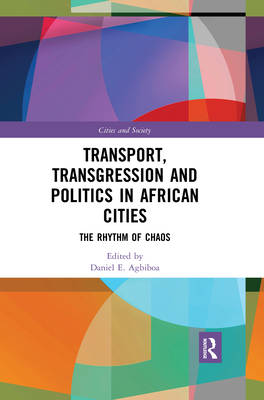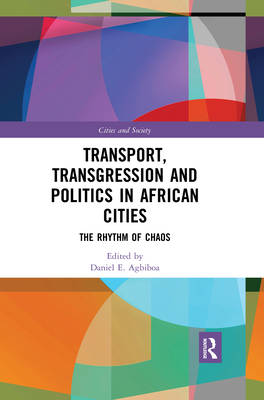
- Retrait gratuit dans votre magasin Club
- 7.000.000 titres dans notre catalogue
- Payer en toute sécurité
- Toujours un magasin près de chez vous
- Retrait gratuit dans votre magasin Club
- 7.000.000 titres dans notre catalogue
- Payer en toute sécurité
- Toujours un magasin près de chez vous
Transport, Transgression and Politics in African Cities
The Rhythm of Chaos
Description
This collection of field-based case-studies examines the role and contributions of Africa's informal public transport (also referred to as paratransit) to the production of city forms and urban economies, as well as the voices, experiences, and survival tactics of its poor and stigmatised workforce. With attention to the question of what a micro-level analysis of the organisation and politics of informal public transport in urbanizing Africa might tell us about the precarious existence and agency of its informal workforce, it explores the political and socio-economic conditions of contemporary African cities, spanning from Nairobi and Dar es Salaam to Harare, Cape Town, Kinshasa and Lagos. Mapping, analysing and comparing the everyday experiences of informal transport operators across the continent, this book sheds light on the multiple challenges facing Africa's informal transport workers today, as they negotiate the contours of city life, expand their horizons of possibility and make the most of their time. It thus offers directions for more effective policy response to urban public transport, which is changing fundamentally and rapidly in light of neoliberal urban planning strategies and 'World Class' city ambitions.
Spécifications
Parties prenantes
- Editeur:
Contenu
- Nombre de pages :
- 180
- Langue:
- Anglais
- Collection :
Caractéristiques
- EAN:
- 9780367479039
- Date de parution :
- 14-01-20
- Format:
- Livre broché
- Format numérique:
- Trade paperback (VS)
- Dimensions :
- 155 mm x 231 mm
- Poids :
- 317 g






